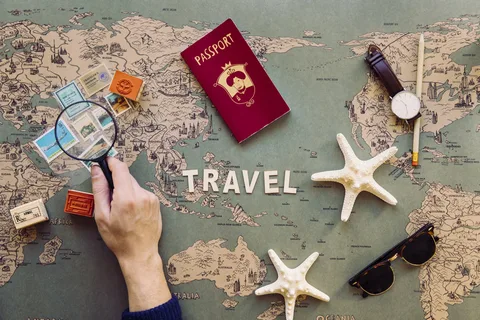Hurt While Traveling for Work: Here’s What Counts and What Doesn’t
You’re traveling for a conference, training, or an important client meeting. Everything is going smoothly – until it’s not. Maybe you slip on a freshly mopped hotel floor or get into a minor car accident between appointments. Suddenly, you’re wondering: does workers’ compensation apply in this situation?
Being away from your regular workplace blurs the lines, and the rules aren’t always straightforward. That’s why it’s important to understand what actually qualifies as a work-related injury while traveling. It can make the difference between a successful claim and a stressful denial. If you’re unsure, it’s wise to seek guidance. A great starting point is https://www.workerscompensationattorneyorangecounty.com/, they will help you understand your rights and how to navigate a claim when the injury doesn’t happen at your usual desk.
Covered: When Workers’ Comp Has Your Back on the Road
Not every injury that happens while you’re out of the office is automatically excluded. In fact, many travel-related injuries are fully eligible for workers’ compensation – if certain conditions are met.
Workers’ comp typically applies when the injury occurs during an activity that’s part of your job. That means:
1. Injured While Doing Job-Related Tasks
This one’s straightforward. If you were attending a mandatory meeting, working a trade show booth, or heading to a scheduled client visit and got hurt, it likely counts. These are considered core work duties – even if they’re happening across the country.
2. Hurt at Your Hotel or Temporary Lodging
In most cases, your hotel becomes an extension of your workplace while you’re on a business trip. So if you slip in the shower, trip on a stairwell, or even sprain your ankle walking to the lobby for breakfast, there’s a strong argument for coverage.
3. Accidents While Commuting Between Work Stops
Say you’re driving from your hotel to a company-sponsored dinner or a second client meeting and you get into a car accident. This is typically considered part of your work trip, making your injury eligible for workers’ comp.
Fun fact: Courts have even ruled in favor of workers who were injured while going out to dinner alone on a business trip. Why? Because eating is considered a necessity when traveling for work, and there were no other options. So yes, even grabbing a bite can sometimes count.
Not Covered: When Your Trip Becomes Too Personal
Even if you’re technically on a business trip, not every activity falls under the “work-related” umbrella. Some situations just don’t make the cut.
1. Personal Detours and Side Trips
If you decide to go sightseeing, visit a friend, or check out a tourist attraction and something goes wrong, workers’ comp likely won’t apply. These detours are considered personal choices and not required by your job.
2. Adding Vacation Time to Your Trip
If you extend your trip to squeeze in a mini vacation after your work obligations are done, you’re probably not covered during that additional time. For example, injuries during a beach day tacked onto the end of your conference trip won’t qualify.
3. Airport Commutes, Depending on the State
Some states treat your commute to the airport the same as commuting to your regular office. Unless your employer arranges or pays for the transport, injuries during this part of the journey might not be eligible for compensation.
The Value of a Workers’ Comp Lawyer in These Situations
When there’s a gray area – like whether your lunch break during a work trip counts as job-related – having a good workers’ compensation lawyer can make all the difference.
They understand how to connect the dots between your injury and your work duties. They know how to present evidence that strengthens your case. Most importantly, they know how to challenge an insurance company’s denial when you’re doing your best just to recover.
If you’re not sure where to begin, a quick look at the map can help you find someone equipped to guide you through the process:
Workers’ comp attorneys deal with these situations every day. What might seem like a questionable claim to you could actually be a textbook example of something that should be covered.
If You Get Hurt While Traveling for Work, Do This Immediately
Start documenting everything right away. This helps tremendously later on:
- Report the incident to your employer
- Get medical attention and save all records
- Take photos of where it happened
- Write down what you were doing and why it was part of your job
It may seem like overkill in the moment, but if your claim is challenged, that information becomes critical.
Know Your Rights Before You Fly
When you travel for work, your job doesn’t end when you leave the office. Whether you’re in a different city or halfway across the globe, your rights follow you.
The key takeaway? Don’t guess. If you’re injured on a work trip – even during something as ordinary as getting dinner or walking down the hotel hallway – talk to a qualified workers’ comp lawyer. They’ll help you sort out what counts and give you the best chance of getting the support you deserve.
And next time you pack your bags for a business trip, remember: your safety still matters, no matter where the job takes you.







